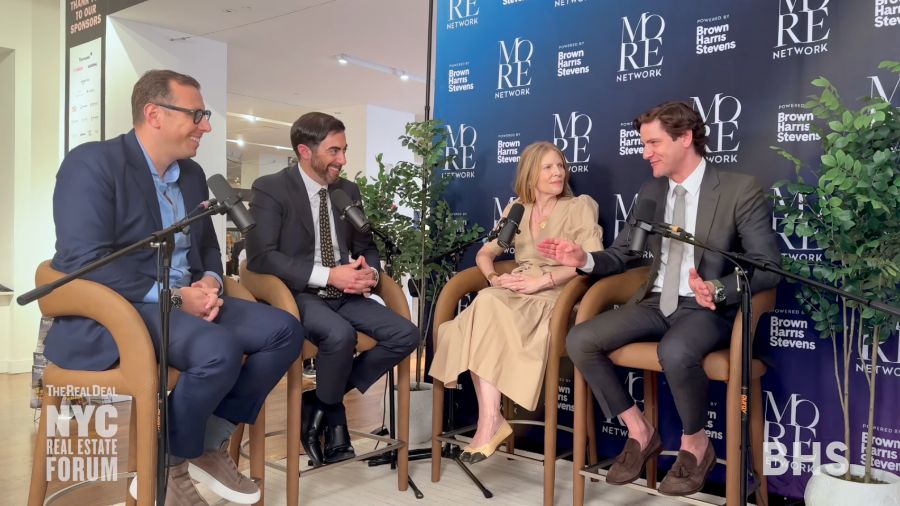By Candice Milano & Malessa Rambarran, Licensed Real Estate Professionals
Not everyone starts out in real estate. Some begin in classrooms, hospitals, or corporate offices—until a side project or small investment sparks something bigger. One deal turns into two. A duplex becomes a flip. And before long, a whole new career path starts to take shape.
If you’ve ever wondered how people go from small-scale investing to building luxury homes, the answer isn’t magic—it’s momentum. Whether you're thinking about buying your first rental or dreaming of breaking into high-end development, here’s how that journey often unfolds—and how to build your own roadmap along the way.
Start Where You Are -- With What You Have
Many successful real estate investors didn’t begin with a trust fund or development background. What they did have was curiosity, a willingness to take calculated risks, and a deep desire to build something of their own.
The first deal is rarely glamorous. Often, it’s a modest multifamily in a local neighborhood—something you can afford, understand, and actively manage. It might involve some sweat equity, a renovation budget, and a steep learning curve. But more than anything, it gives you your first proof of concept: that you can identify an opportunity, execute on a plan, and (hopefully) walk away with a profit.
Don’t wait for the perfect market conditions. Start with what you can buy today, in a market you understand, and focus on learning from the process.
Follow the Momentum and the Market
Once you’ve completed a successful project, the key is to leverage that momentum. Reinvest your profits strategically and think about how to level up:
- Could you take on a slightly larger property?
- Are there higher-end markets you understand well, or have a personal connection to?
- Can you bring in a partner or investor to grow your budget and expand your vision?
In many cases, people find their “niche” by leaning into what they already know. Maybe you went to college in a specific area, have professional ties to a vacation market, or understand the lifestyle of a particular demographic. Use that insight to your advantage when scouting your next project.
Market timing can multiply your gains. While no one can predict the perfect exit, paying attention to macro trends and local momentum can help you make well-informed decisions about when to hold, renovate, or sell.
Build Relationships that Build Your Business
Real estate is not a solo sport. One of the most common themes among successful developers is the importance of partnerships. That includes:
- Financial partners who believe in your vision
- Architects and designers who bring consistency and creativity
- Builders and contractors who help execute at a high level
- Advisors, brokers, and mentors who help you navigate complex deals
These relationships are especially important as you move into larger, riskier projects. You’ll face setbacks, delays, and tough calls—and having a trusted team makes all the difference.
Early on, surround yourself with people who are more experienced than you. Later, prioritize people you trust, even above getting the lowest bid. Longevity in this business comes from integrity and teamwork.
Design and Vision are Strategic Assets
As you scale up, the design of your project becomes just as important as the numbers. A beautiful, functional, and cohesive product will always stand out—especially in competitive markets.
Many high-end builders attribute their success to working with the same architect or designer across multiple projects. That consistency creates a recognizable style, builds trust with investors and buyers, and leads to better execution over time.
Design is not just aesthetics, it’s strategy. It affects how people feel in a space, how they talk about the home, and how much they’re willing to pay.
Keep Growing. Stay Grounded
Once you’ve found success in a niche—whether it’s fix-and-flips, rentals, or spec homes—your biggest challenge becomes scaling without losing quality. That means being selective about deals, not rushing timelines, and knowing when to say no.
Many seasoned investors eventually aim to do fewer, better projects each year. They refine their systems, protect their margins, and prioritize thoughtful growth over volume.
Every stage of growth comes with new lessons. What worked on your first deal may not apply on your tenth. Stay humble, stay curious, and adapt with each project.
Your Path Doesn't Have to be Traditional
If you’re looking at multi-million-dollar listings wondering how those homes came to be, remember: every developer starts somewhere. Often, it’s with one well-timed purchase, a bit of creativity, and a lot of persistence.
The path from first-time investor to luxury builder isn’t a straight line, but it’s absolutely possible. With the right strategy, team, and mindset, you can build a real estate career that’s as profitable as it is fulfilling.
For more insights into this topic, check out Episode 303 of The Build Up Podcast for Candice and Malessa’s informative episode with Rich Perello.
Please note, this content is for informational purposes only and should not be considered financial, legal, or investment advice; always consult with a qualified professional before making any decisions

